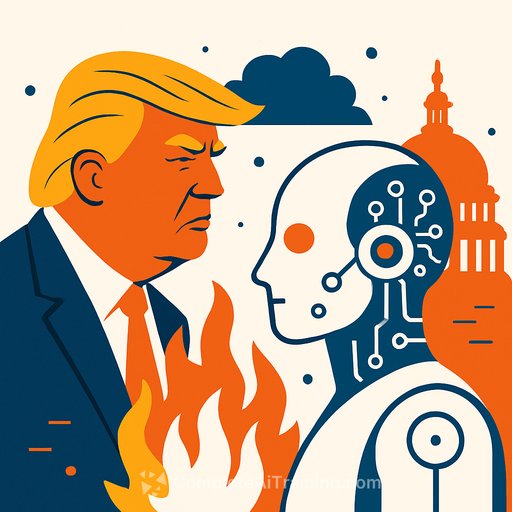Trump’s Anti-Science Agenda Threatens U.S. Leadership in AI
President Donald Trump's efforts to reduce the federal budget are having unintended consequences that extend into the nation's AI ambitions. Measures like firing and rehiring federal workers and the failed initiative led by Elon Musk’s so-called Department of Government Efficiency have already shown signs of dysfunction. Now, experts warn that these cost-cutting moves, coupled with an anti-science stance, risk undermining the United States’ leadership in artificial intelligence.
Federal Budget Cuts Undermine AI Research Funding
Last month, the Trump administration introduced the "AI Action Plan", intending to keep the U.S. ahead in AI development against competitors such as China. However, the absence of new research funding casts doubt on the plan’s effectiveness. Mark Histed, head of neural computation and behavior at the National Institute of Health, noted that while the impact may not be immediate, the broader AI ecosystem built on federal support is at risk of erosion.
Many foundational AI projects—like computer vision for autonomous vehicles and Google’s AlphaFold protein modeling—originated with federal funding. Drastic cuts to neuroscience and related fields could stall AI progress since breakthroughs often emerge from the intersection of multiple scientific disciplines.
Cross-Disciplinary Science Is Vital for AI Advancement
AI systems draw inspiration from biological neural networks, and understanding brain functions such as memory and cognition is crucial for advancing machine learning architectures. Histed emphasized that the early stages of this scientific inquiry rely heavily on federally funded research.
Reducing support for neuroscience may slow down these insights, hampering AI development in the long run. The synergy between AI and neuroscience research is not just academic—it’s a key driver behind many innovations.
Funding Cuts Cause Talent Drain to Private Sector
Another pressing issue is the migration of skilled AI researchers from academia to tech companies. Without adequate funding for research and education at universities, the pipeline of talent feeding both sectors will diminish.
“We train large numbers of neuroscience and related field experts who then join tech companies,” Histed explained. The academic world, supported by federal funds, is essential for developing the specialists pushing AI forward.
Rebecca Willett, a computer science professor at the University of Chicago, added that universities play a critical role by educating students who become the backbone of AI innovation in industry. Without sustained investment in education, companies may soon face a shortage of qualified professionals.
Why This Matters for Science and Research Professionals
The current trend underscores how federal policy and funding decisions directly influence the pace and direction of AI research. For those working in science and research, it highlights the importance of advocating for stable funding and supporting interdisciplinary projects that bridge AI, neuroscience, and other fields.
Staying informed about policy developments and engaging with initiatives that promote research funding can help safeguard the future of AI innovation in the U.S.
For professionals looking to deepen their AI expertise despite these challenges, resources like Complete AI Training’s latest courses offer practical learning pathways grounded in current industry needs.
Your membership also unlocks:






